Devil Dogs: The Modern Marine Corps, and Some of Its Best Lore, Began at Belleau Wood
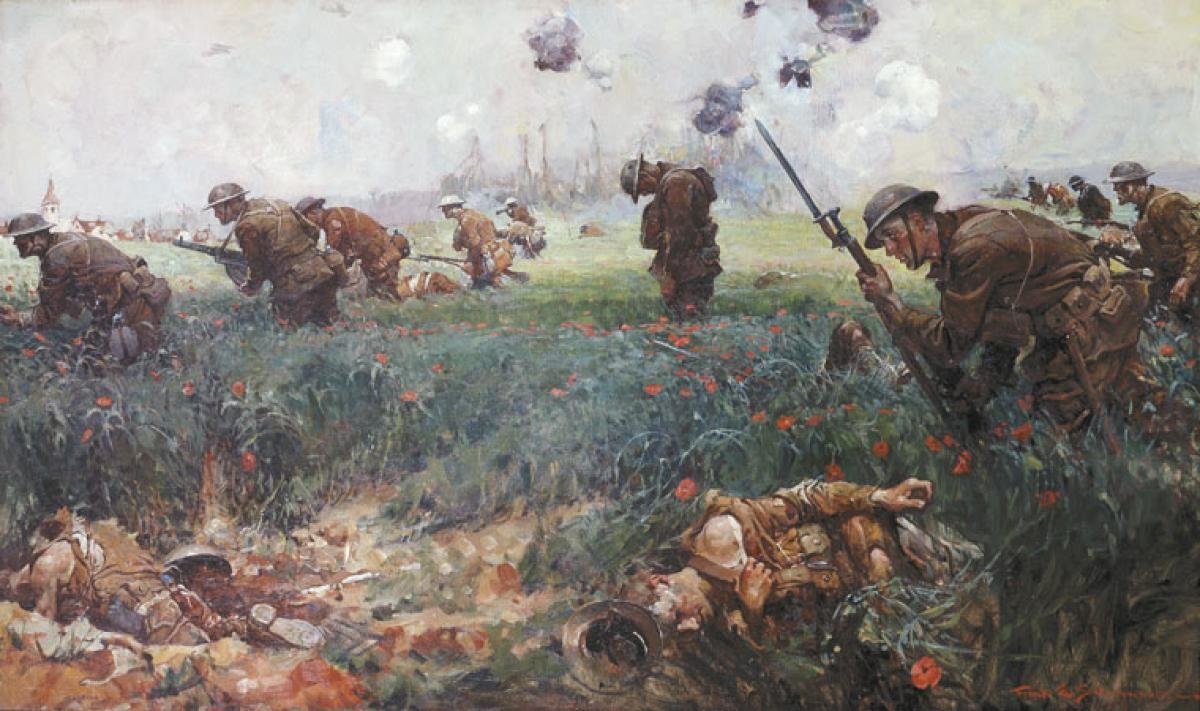
A 1919 painting by Frank Schoonover illustrates the wheat field bombardment during the first phase of the Battle of Belleau Wood. Image via USMC.
The Battle of Belleau Wood raged through most of June 1918. From its opening shots on June 1 to Marines clearing the last German positions on June 26, the battle marked the largest fight in Marine Corps history to that point and the baptism by fire of four future Marine Corps commandants.
A long list of enduring Marine myths also traces back to the battle, including famous moments of battlefield bravado and the service’s “Devil Dogs” nickname.
After the US joined World War I in April 1917 — reinforcing the exhausted French and British troops who had been fighting for three years — Marines were plugged into the front lines throughout France over the course of a year. In early summer, 1918, the 4th and 2nd Marine Brigades were sent to relieve the weary European troops near Chateau-Thierry. The 2nd Marine Brigade stayed in Chateau-Thierry and Reims to reinforce French lines, eventually stopping the German advance at the Second Battle of the Marne in July. The 4th Marine Brigade went 7 miles northwest to Belleau Wood.
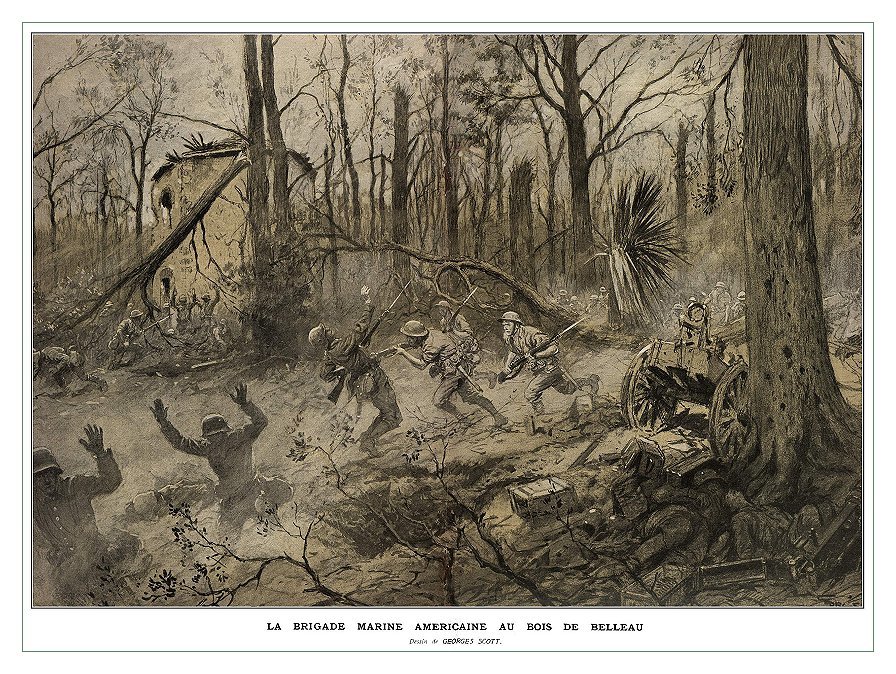
The battle’s first enduring legend traces to the opening days. Capt. Lloyd Williams commanded one of the Marine units arriving in Belleau. As Williams’ Marines reached the embattled wheat field outside the woods, they met a French force that had sustained heavy fire and fierce losses.
The French advised the Americans to follow them as they organized a hasty retreat.
“Retreat?” Williams supposedly replied. “Hell, we just got here!”
The battle’s opening phase was a fight over an expansive wheat field just outside the main woods’ tree line. Dug-in machine-gun nests on both sides made for morbid target practice against advancing infantry.
“We were told to dig in,” Corp. Elton Mackin said in a recorded interview for the Library of Congress Veterans History Project in 1973. “The more we dug, the better we’d be because it was going to be hell at dawn, and it was. The Germans came across a thousand yards of open wheat. Just at dawn, they came four times in five hours [… and] reached our line twice. I saw men beheaded within twenty feet of me. But they did not take our hill. That was the initiation for a bunch of scared kids, many of whom died before noon that day.”
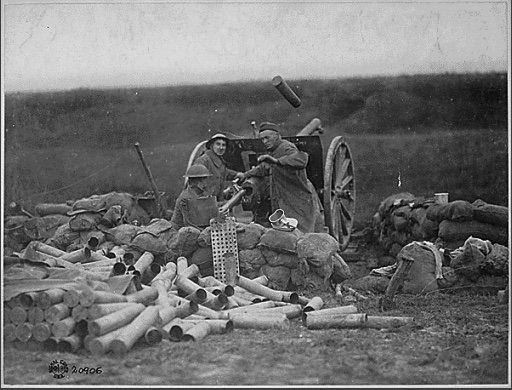
The Marines repelled six German attacks across the field before turning the tables and rushing toward the German lines themselves on June 6. The Marines broke through at the cost of thousands of lives on both sides.
According to Marine Corps legend, it was during this assault that Sgt. Maj. Daniel Daly — one of 19 men to receive two Medals of Honor in his career — shouted, “Come on you sons of bitches, do you want to live forever?”
Phase Two of the monthlong fight took place in the woods. Across the wheat field, Marines were deadly shots with a rifle, but in the thick forest, fighting devolved to bayonets and hand-to-hand combat. The fighting raged for more than two weeks before the Marines cleared the last of the German soldiers from the forest on June 26.
With 9,777 casualties (1,811 killed in action) on the American side, a toll not suffered by US troops since the Civil War and not to be equaled among Marine forces until Tarawa, Belleau Wood was a grueling and hard-won victory. Gen. John Pershing, who commanded all US forces on the Western Front in World War I, said, “The Battle of Belleau Wood was for the U.S. the biggest battle since Appomattox and the most considerable engagement American troops had ever had with a foreign enemy.”
The Imperial German Army, already on its last legs after four years of war, is thought to have suffered as many as 10,000 casualties, with another 1,600 captured.
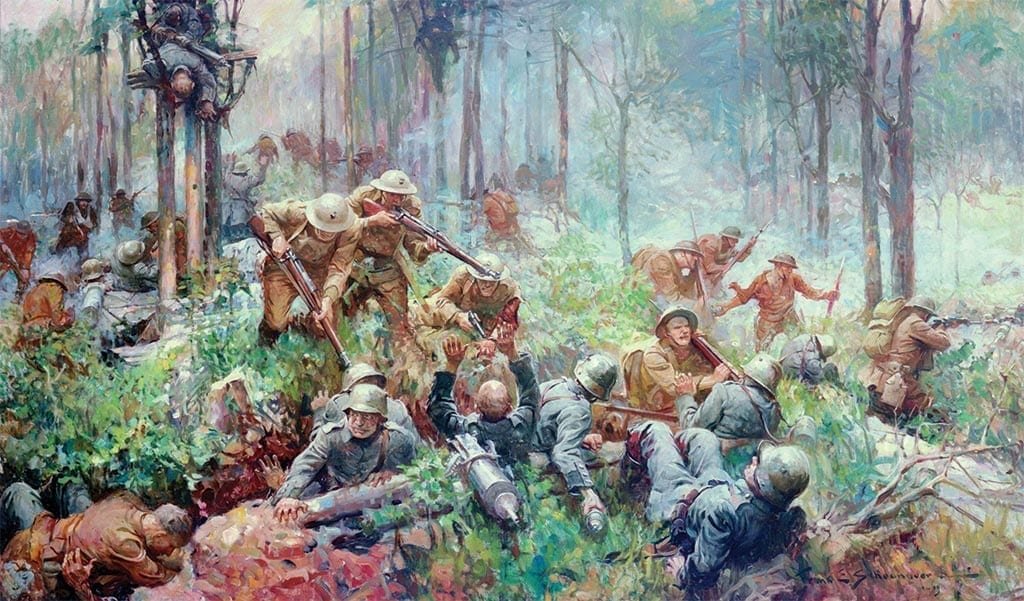
The Battle of Belleau Wood marked a major milestone toward ending the war. The Germans were a mere 50 miles from Paris, but their losses at the Second Battle of the Marne — which began just a week after Americans repelled them at Belleau — ended the German advance for good. Germany signed the armistice agreement on Nov. 11 later that year, a date which is now celebrated in the US as Veterans Day.
The battle also disproved any hopes the Germans had that the late-arriving American soldiers were just hicks and backwoods farmers standing as cannon fodder. Another central Marine Corps legend to emerge from the battle was the nickname of “Devil Dogs.” American reporters, including H.L. Mencken, helped spread the story that German units had feared the Marines so much that they nicknamed their opponents “teufelshunde” (TOY-fels-HOON-duh), further demotivating the war-weary army.
Historians, however, agree that the name was probably one invented by Marines themselves while they were in France. Newspaper articles about the Marines published before the events of Belleau Wood used the term.
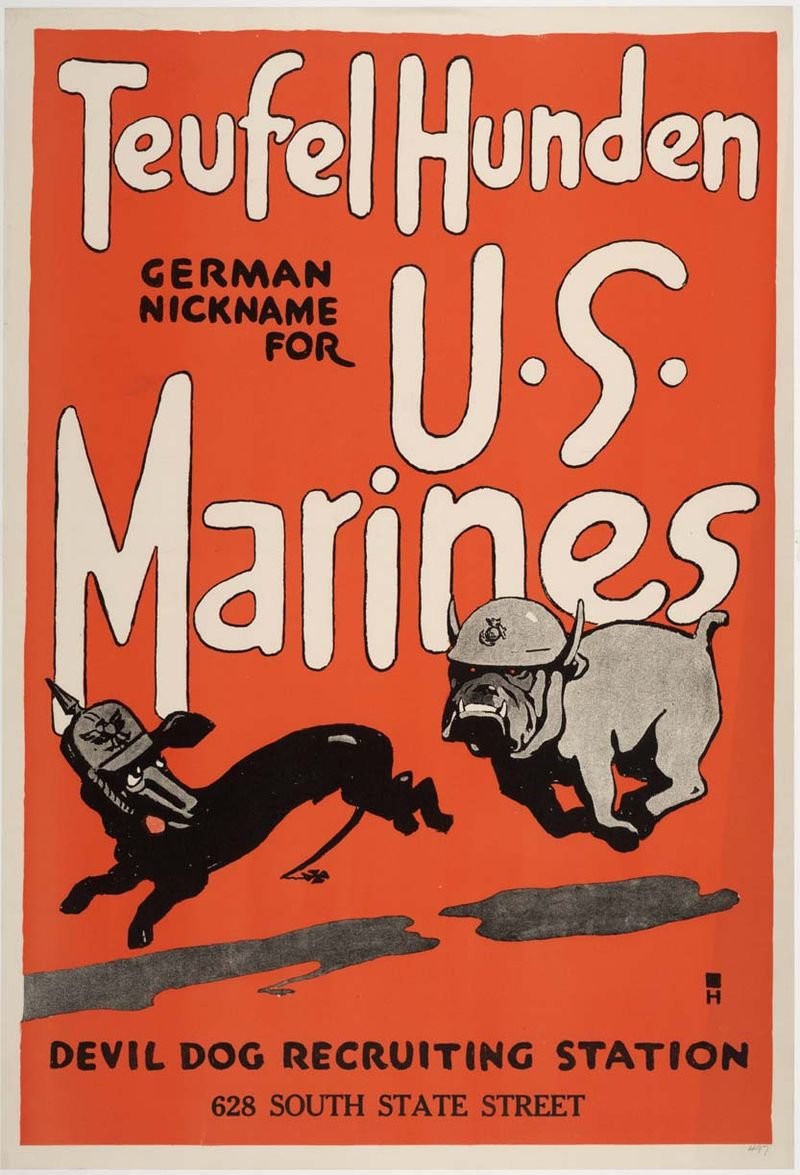
For the Marine Corps, the battle is sometimes viewed as the birthplace of the modern Corps. Along with the legends of Daly’s and Williams’ inspirational words, four future commandants of the Marine Corps were at the battle, as were four future division commanders at Iwo Jima (Gen. Clifton B. Cates was both). The battle also led to 143 Navy Crosses and four Medals of Honor, two for Marines — Gunnery Sgt. Ernest A. Janson and Gunnery Sgt. Fred W. Stockman — and two for Navy sailors fighting with them — Lt. Orlando H. Petty and Lt. j.g. Weeden Osborn.
The French renamed Belleau Wood “Bois de la Brigade de Marine” — Marine Brigade Woods — in honor of the 4th Marine Brigade that saved Paris from German invasion. The unit was also awarded the French Croix de Guerre medal.
Those killed in the conflict, both American and German, were buried nearby in the Aisne-Marne Cemetery.
Read Next: Frequent Wind: How the US Evacuated 70,000 Refugees From Vietnam

Lauren Coontz is a former staff writer for Coffee or Die Magazine. Beaches are preferred, but Lauren calls the Rocky Mountains of Utah home. You can usually find her in an art museum, at an archaeology site, or checking out local nightlife like drag shows and cocktail bars (gin is key). A student of history, Lauren is an Army veteran who worked all over the world and loves to travel to see the old stuff the history books only give a sentence to. She likes medium roast coffee and sometimes, like a sinner, adds sweet cream to it.
BRCC and Bad Moon Print Press team up for an exclusive, limited-edition T-shirt design!
BRCC partners with Team Room Design for an exclusive T-shirt release!
Thirty Seconds Out has partnered with BRCC for an exclusive shirt design invoking the God of Winter.
Lucas O'Hara of Grizzly Forge has teamed up with BRCC for a badass, exclusive Shirt Club T-shirt design featuring his most popular knife and tiomahawk.
Coffee or Die sits down with one of the graphic designers behind Black Rifle Coffee's signature look and vibe.
Biden will award the Medal of Honor to a Vietnam War Army helicopter pilot who risked his life to save a reconnaissance team from almost certain death.
Ever wonder how much Jack Mandaville would f*ck sh*t up if he went back in time? The American Revolution didn't even see him coming.
A nearly 200-year-old West Point time capsule that at first appeared to yield little more than dust contains hidden treasure, the US Military Academy said.












